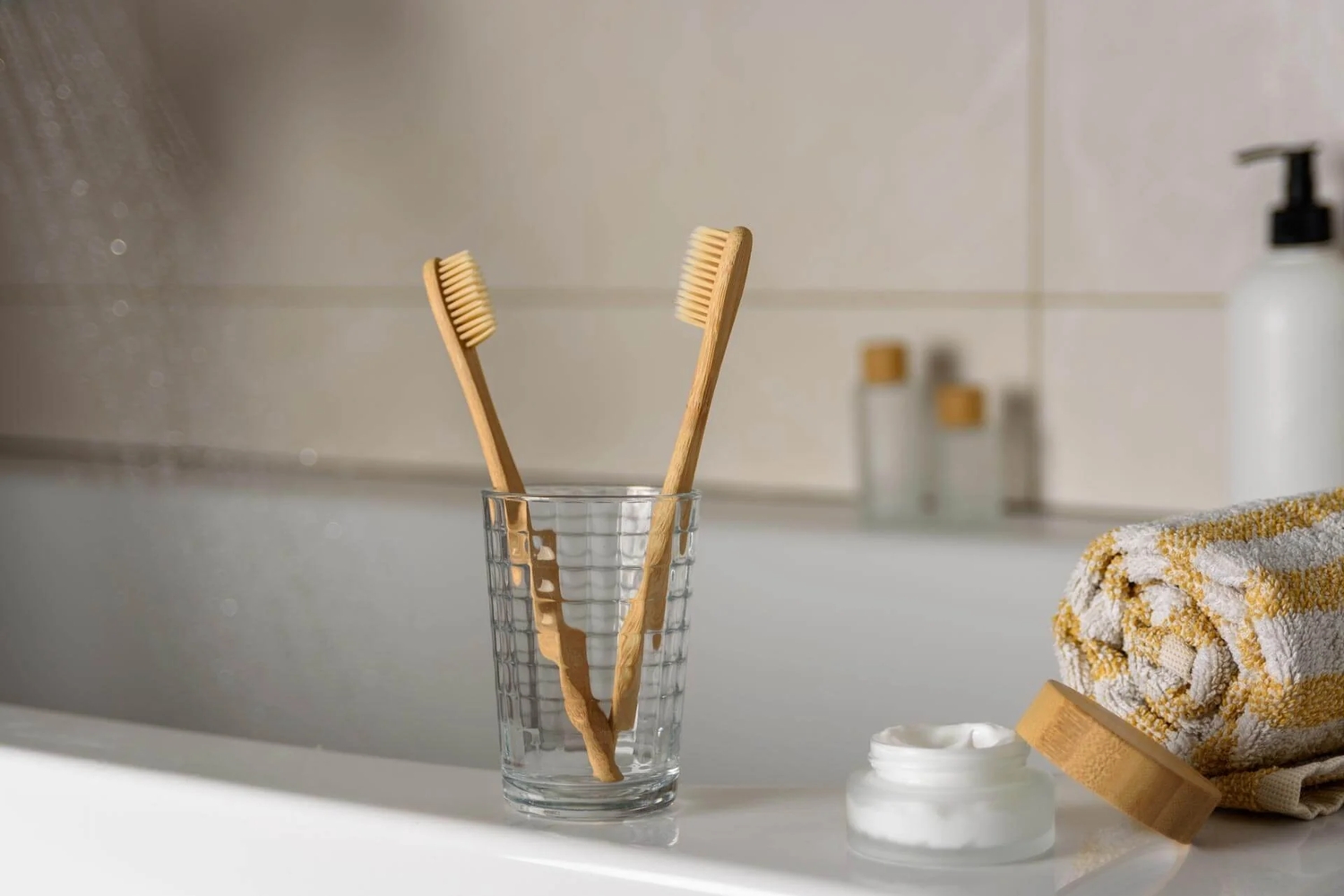

Why Swap
- An estimated 4.7 billion plastic toothbrushes are thrown away every year worldwide
- Most of us will replace around 300 toothbrushes during our lifetime
- It's not possible to recycle most toothbrushes since they're made from several types of plastic and small parts get stuck in machinery
The Alternatives
Billions of plastic toothbrushes are thrown out every year and they don't get recycled, so switching to natural materials like bamboo is a great solution. If possible, opt for toothbrushes that have bristles made from natural oil or plant-based material, as this means the full product is likely to break down quicker without the risk of creating microplastics. Electric toothbrushes can help reduce ongoing waste, as you only need to replace the heads. When it comes to charging, electric toothbrushes with removable batteries tend to be cheaply made and risk water damage, so opt for those with lithium or nickel batteries and a stand or charging point for longer life.
Bamboo Toothbrushes
As a material bamboo has lots of benefits. It absorbs twice as much carbon dioxide as trees and requires less water to grow – it's also light so requires less energy to transport. And since it's a natural material it will fully biodegrade once it reaches the end of its life, unlike plastic.
Industrially Compostable
Recycled Materials
Reusable
Electric Toothbrushes
Using an electric toothbrush with replaceable heads will lead to less waste over time as you only need to replace the heads. There are some newer electric toothbrushes which are made from plant based plastics or recycled materials. This avoids the need for any new oil-based plastics altogether, and can make it easier to dispose of and break down at the end of its life. Going for an option with industrially compostable heads will ensure the smallest overall footprint, though some manufacturers will also offer recycling schemes so you can send them back to them.
Industrially Compostable
Recycled Materials
Reusable



